|
Cecidomyia pini
|
|
| Juanravazq |
Posted on 18-12-2016 17:41
|
|
Member Location: Posts: 421 Joined: 15.12.16 |
I found this pupa attached to the leaf of a pine (Pinus halepensis) 12 February 2016 Castellón (Spain) Edited by Juanravazq on 02-11-2017 20:58 Juan R. Vázquez |
|
|
|
| Juanravazq |
Posted on 18-12-2016 17:42
|
|
Member Location: Posts: 421 Joined: 15.12.16 |
From the pupa emerged this Diptera Cecidomyiidae? Juan R. Vázquez |
|
|
|
| John Carr |
Posted on 18-12-2016 18:25
|
|
Member Location: Posts: 9773 Joined: 22.10.10 |
Male in supertribe Cecidomyiidi. Based on host plant, probably Cecidomyiini. European literature may provide more specific ID. A quick search tells me Thecodiplosis brachyntera is a possibility because related species mine needles. Cecidomyia is found in resin, so is less likely. |
|
|
|
| John Carr |
Posted on 18-12-2016 18:37
|
|
Member Location: Posts: 9773 Joined: 22.10.10 |
I checked some literature. According to Gagné (1978), "Larvae of Cecidomyia pini leave the pitch mass to spin coccoons in which they pupate." Gagme, R. J. 1978. A systematic analysis of the pine pitch midges, Cecidomyia spp. (Diptera: Cecidomyiidae). USDA Technical Bulletin, https://naldc.nal...AT87201463 |
|
|
|
| Juanravazq |
Posted on 18-12-2016 19:08
|
|
Member Location: Posts: 421 Joined: 15.12.16 |
Thank you very much for the information. It is very interesting. Kind regards Juan R. Vázquez |
|
|
|
| Jump to Forum: |


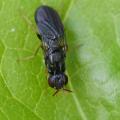



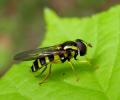
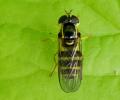

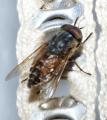
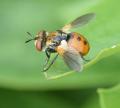



 but don't see the image in the post.
but don't see the image in the post.
